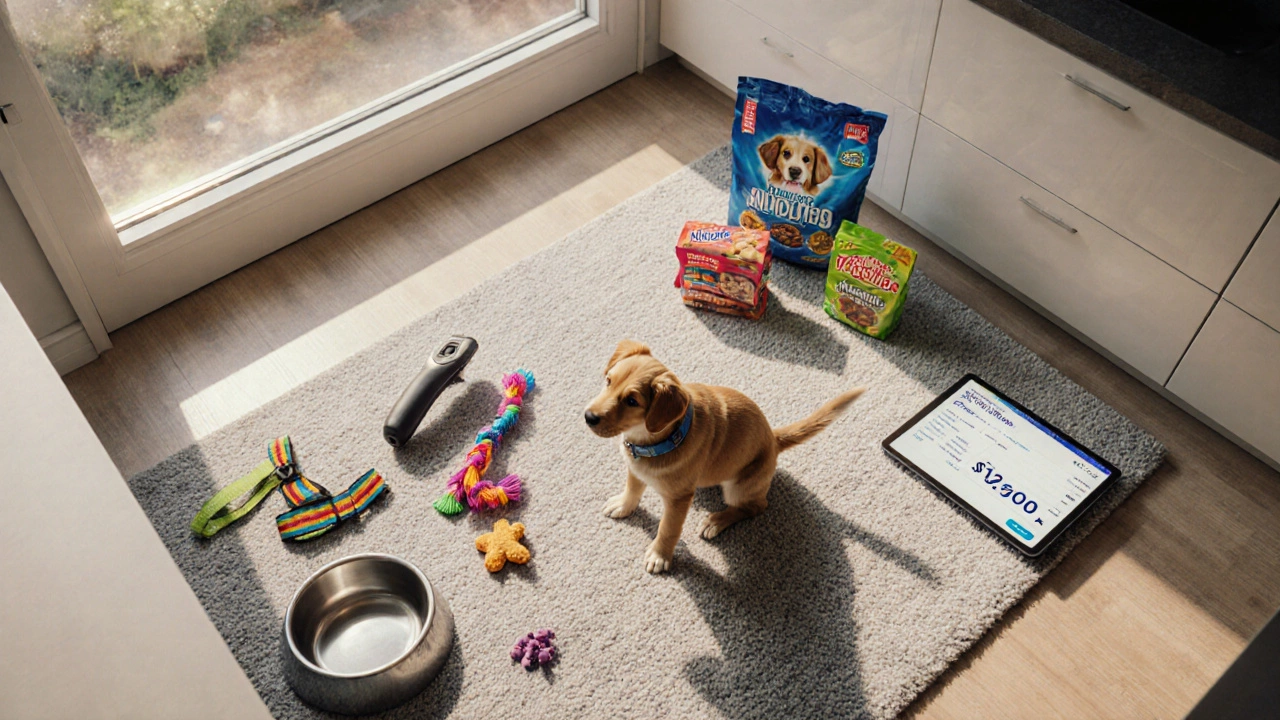Understanding Puppy Expenses
When planning for a new pup, it's crucial to grasp what puppy expenses, the total out‑of‑pocket costs associated with raising a dog from birth to adulthood, also known as puppy budgeting really involve. Puppy grooming costs, fees for regular baths, nail trims, and professional trims are a recurring line item, while veterinary care, routine check‑ups, vaccinations, and unexpected illness treatments can swing wildly month to month. Adding dog food budgeting, daily meals, treats, and special diet supplements completes the three biggest pillars that shape a puppy's financial picture.
These pillars aren't isolated; they influence each other. For instance, proper nutrition (dog food budgeting) can lower future vet bills by reducing obesity‑related issues, while regular grooming helps spot skin problems early, saving money on costly treatments later. That's why a solid budgeting plan looks at all three together. You’ll also want to factor in one‑time items like crates, leashes, and travel carriers, which, although upfront, affect monthly cash flow as you replace or upgrade them.
Breaking Down the Main Cost Categories
First, puppy grooming cost varies by breed and coat type. An 8‑week‑old puppy may need a gentle bath and a simple trim, costing around £30‑£50 per session. Double‑coated breeds often require more frequent professional grooming, pushing monthly totals toward £80. DIY grooming kits can cut the expense but demand time and basic tools – clippers, brushes, and shampoo – which add an initial outlay of £20‑£40.
Second, veterinary care is non‑negotiable. Initial puppy vaccines typically run £70‑£110 for the full series, plus a £40‑£60 first‑year health check. Parasite preventatives cost £10‑£20 each month, and any emergency visit can spike the bill to several hundred pounds. Pet insurance is a popular way to smooth out those peaks; basic policies start at £15‑£20 per month, covering many routine and accidental expenses.
Third, dog food budgeting hinges on quality and size. A balanced kibble for a medium‑sized puppy averages £30‑£45 a month, while premium grain‑free options can exceed £60. Treats and supplements, such as fish oil for coat health, add another £5‑£15 monthly. Planning meals ahead and buying in bulk often trims the cost without sacrificing nutrition.
Beyond these, training gear and classes represent a notable line item. Puppy training classes (group or private) range from £80 to £150 per course, and basic equipment – clickers, crates, chew toys – may total £50‑£100 initially. If you plan to travel, airline pet fees () can be £30‑£150 per flight depending on size and carrier, so budgeting for travel early avoids surprise charges.
All these pieces form a network of financial commitments. The semantic relationships are clear: puppy expenses encompass grooming, veterinary care, and nutrition; effective budgeting requires accounting for one‑time gear and recurring supplies; and investing in preventive care often reduces long‑term veterinary costs. By seeing how each element connects, you can allocate your funds where they matter most.
Now that you have a snapshot of where money usually goes, you’re ready to dive into the detailed guides below. Whether you’re curious about the exact cost of a groom, the best way to pick a vet, or how to stretch your dog food budget, the articles ahead break each topic down into actionable steps and real‑world numbers.
Hidden Truths About Getting a Puppy: What No One Tells You
Discover the hidden costs, sleep loss, training hurdles, and health tips no one mentions when getting a puppy, plus a practical first‑week checklist.






